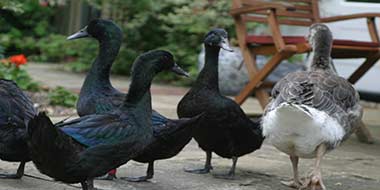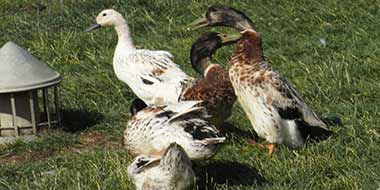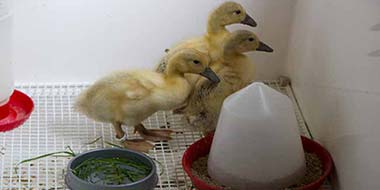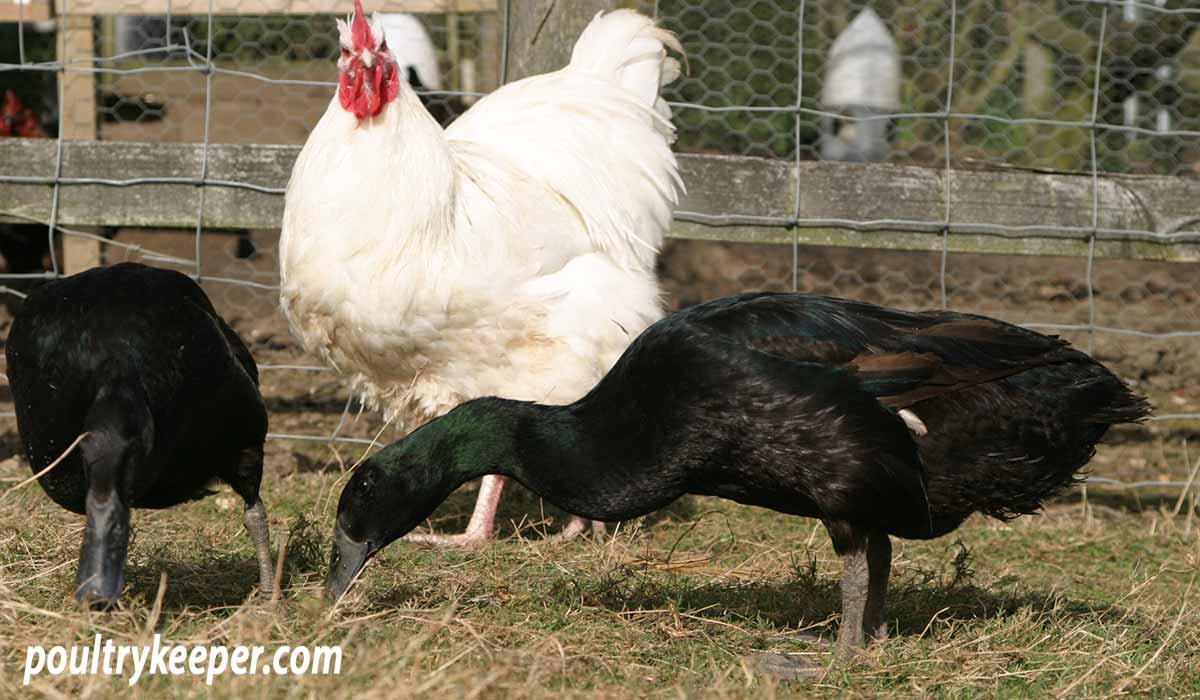
Chickens and ducks can squabble, just as they will amongst themselves sometimes, but it’s the chickens that can cause the most damage with their sharp beaks. Caution should be taken with drakes and cocks as both can be argumentative at certain times of the year.
If they are kept in a large enough area, and there are multiple food and water locations to prevent conflict around these resources, chickens and ducks should avoid one another. It’s usually the ducks that will back down.
Separate housing
Unless housing is large enough for ducks and chickens to keep apart, they should be housed separately. It’s also worth remembering that ducks won’t always put themselves to bed like chickens will when it gets dark. However, they will come together and are easy to guide as a flock with your arms outstretched, unlike chickens who will go off in random directions when approached!
Feeding chickens and ducks together
As youngsters, chickens and ducks require a different type of food. Chick crumbs and Growers pellets intended for chickens often contain Anti Coccosidistats. These are a drug that is added to help prevent Coccidiosis. Ducklings eat at a greater rate than chickens and consequently overdose on the drug and go off their legs and even die.
If you are raising ducklings, there is more information in my article Feeding Ducklings.
I would certainly not mix young chickens or ducks anyway, but it’s worth remembering their feed should be checked. Once both are fully grown, they can both be fed on poultry layers pellets, and ducks should have wheat, although true free-range ducks will find a fair amount of their own food from greens such as grass, duckweed (if available on a pond), insects, bugs and slugs.
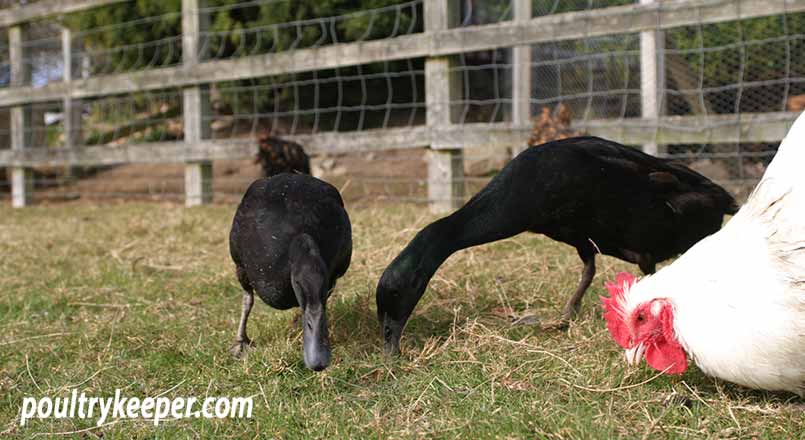
There is too much calcium in poultry layers pellets for drakes, so make sure that wheat is provided for them – this is difficult since too much wheat in your hens’ diet will cause problems since wheat doesn’t contain sufficient protein levels to maintain egg production in hens.
There is detailed information on Feeding Chickens correctly here.
Wheat for the ducks
Ducks need to have access to wheat to eat, but if your chickens have too much wheat (which is lower in protein compared to layers pellets), they will not have sufficient protein to lay large quantities of eggs.
So we need a way to provide some wheat for the ducks to eat, that will stop the chickens from getting too much of it!
What I do is put wheat underwater in a half-size bucket for the ducks. The wheat sinks to the bottom, and the chickens cannot eat it. This also stops crows and rooks from taking the wheat, which usually happens if left dry in a bowl.
As you can see from the photo here, my chickens get rather frustrated!
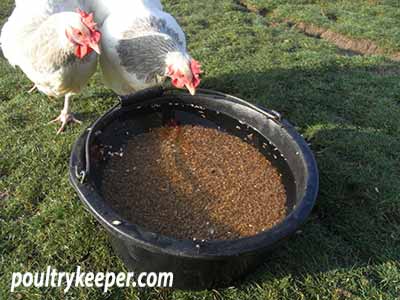
Drakes will regulate their intake between layers pellets and wheat, and in the winter, when they are off-lay, ducks will also eat more wheat than pellets.
Managing ducks' bath water with chickens
Ducks need water to wash in, and they will soon make a mess of chickens’ water containers. If this is the case, water containers can be hung a little off the ground on a wooden tripod with perching bars just off the ground. This allows chickens to fly up onto a perch and take a drink but stops the ducks from reaching the chicken’s container.
A small tub that you can empty easily is suitable for a small number of ducks so that they can climb in to wash or dabble in the water when they want to. If this water is too deep, chickens can fall while drinking and getting waterlogged and drown.
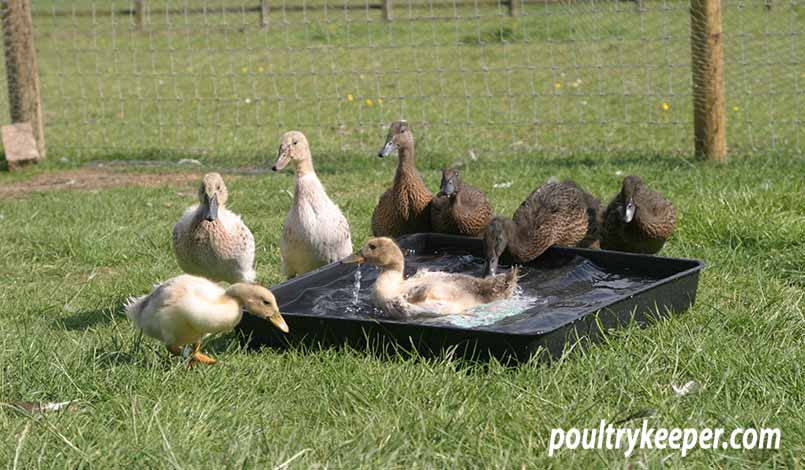
Bricks on the edge of the tub or a ramp out of it can help a chicken to get out if it falls in, but it’s safer to have a shallow tub like the one shown here for these ducklings. Garden centres often sell different size trays. The one shown is small, but my adult ducks get a 4ft square tray that holds about 4 inches of water and can still be tipped up easily.
So, can you keep chickens and ducks together in the same pen? I believe you can and have kept mine together for over 10 years without problems.

